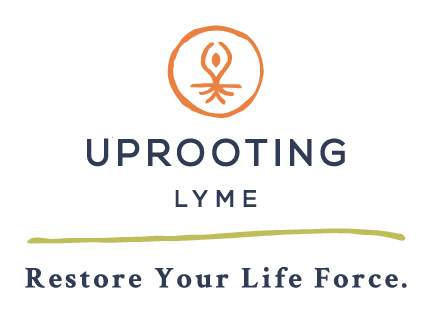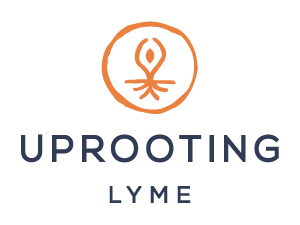
Chronic Gut Illness: Chinese Medicine’s Understanding
An interview with Daniel Weinberg, LAc.
At the Nourishing Life Health Center, we see many patients with various chronic gastrointestinal conditions. How does Chinese medicine understand these issues? We spoke to our new associate acupuncturist, Daniel Weinberg, LAc., who has specialized in GI complaints.
Uprooting Lyme (UL): What sparked your interest in treating GI complaints?
Daniel Weinberg (DW): Both colon cancer and inflammatory bowel disease run in my family, and I also have a personal history of chronic gastrointestinal issues.
UL: Have there been patients who stuck out to you as models for what Chinese medicine can offer for chronic GI issues?
DW: There was one patient during my time at the Seattle Institute clinic that comes to mind: a 49 year old woman with a diagnosis of Stage 4 colorectal cancer (CRC). After enrolling in a Phase 1 clinical chemotherapy trial, she ultimately ended it after 3 months because she “could tell it wasn’t working.” During the treatment, her cancer had metastasized to her liver. Her oncologist told her she was out of options. From that point, the patient wished to receive Chinese Medical care only. That’s how she came to us.
UL: What made her case so intriguing to you?
DW: She had none of the Western medicine-recognized risk factors of CRC: no family history, no inflammatory bowel disease, lived a non-sedentary lifestyle, ate a gluten-free mostly organic diet, was a non-smoker, was not obese, and prior to her cancer diagnosis reported having a “low-stress” lifestyle. Yet here she was, facing the end of her life from the illness.
A Chinese medical perspective would have identified other risk factors that set the stage for illness to occur. One of the primary tenets of Chinese medicine is to treat disease before it arises; in other words, prevention is an integral aspect of care. Early signs of digestive imbalance should be thoughtfully managed and evaluated.
In this case, the patient had suffered from chronic constipation for most of her life. Chronic constipation is a symptom that should not be ignored. The longer stool sits in the bowel, the longer the bowel wall is exposed to a variety of toxins, and depending on one’s diet, that level of toxicity could be lethal. The failure of Western medicine to properly address a patient who has a constitutional tendency toward constipation may ultimately have cost her her life.
UL: How does Western medicine understand the progression of CRC?
DW: CRC is viewed to be multifactorial in origin, developing as a result of genetic changes, environmental exposures, dietary influences and is a higher risk for individuals with a chronic inflammatory bowel condition.
The evolution of CRC is thought to occur over a period of about 10 years. During that time, a multistage process occurs where a loss of normal checks and balances generates a mutational growth of enterocytes (the building blocks of colon tissue), and the loss of tumor suppressor genes that would otherwise defend against malignant cells and disorganization of DNA.
UL: What is Chinese medicine’s understanding of this process?
DW: In Chinese medicine, illness is an imbalance caused by pathogenic influences that take on elemental names. “Damp-heat” and “Wind” are the primary pathogenic influences that cause the colon to become diseased. Damp-heat can be introduced to the bowel via a diet high in animal fats, sugars, and refined foods, which in turn causes injury to the Spleen or digestive system.
Wind pathogens can be thought of as the anaerobic bacteria that can proliferate in the GI tract as a result of the diet noted above. Pathogenic wind can enter the body via chemical exposures, nitrites and nitrates, dyes, sugar substitutes, and pesticides, to name a few.
It is important to mention that something like CRC is a disease process that doesn’t happen overnight — it is the constant, prolonged exposure of the colon to damp-heat and/or wind-toxins that causes a pathogenic ripple-effect to ensue, triggering abscesses and initiating the development of cancer.
UL: Can you compare and contrast the role of diet in CRC according to Western and Eastern medicine?
DW: Dietary factors are estimated to be responsible for 80-90% of all CRC cases. Western medical literature focuses largely on the consumption of red meat as a risk factor. There is legitimate science behind this, as diets high in animal fat and protein lead to increased bile acids, which in turn fosters growth of anaerobic bacteria. That anaerobic bacteria release carcinogenic enzymes, which lead to the development of cancer in the rectum and colon.
However, there have been no studies on individuals who eat grass-fed red meats, like grass-fed beef, which is higher in omega-3 fatty acids than fish and is also believed to be protective against cancer. Bovines did not evolve to eat grains, and grain-fed animals have to be treated with toxic antibiotics as a result of their unnatural diet. Plus, the corn that is used to feed those animals is grown as a genetically modified monoculture and is riddled with pesticides. All of these things affect the quality of the meat.
Where Western medicine might suggest a one-size-fits-all approach like the elimination of all red meat for all people, there are times when a Chinese medical practitioner would recommend the consumption of red meat. For example, if a patient presents with symptoms of what we call “blood deficiency,” the treatment strategy would be for that patient to introduce more grass-fed red meat into their diet to build blood.
One of the ways we can help prevent disease is to train our patients to become informed consumers when they enter the grocery store and to encourage them to be curious not only about what kind of food they’re buying, but where it came from, how it was grown/raised and how best to prepare that food.
UL: Let’s return to your patient. Since it was too late for prevention, how did Chinese medicine address her symptom picture?
DW: One of the patient’s primary concerns was reducing active rectal bleeding. In our clinic, a team of three practitioners worked together to design a Chinese herbal formula aimed at dispelling blood stasis and stopping bleeding both internally and via a patient-administered enema.
The formula used was: Dang Gui (Angelica), Mu Dan Pi (Moutan), Tao Ren (Peach Kernel), Chi Shao (Red Peony), San Leng (Sparganium), E Zhu (Zedoaria), Hong Hua (Safflower), Huang Qin (Baikal skullcap), Da Huang (Turkey rhubarb), Chen Pi (Tangerine peel), Xiang Fu (Cyperus), and Zhi Ke (Bitter orange). Together, the herbs in the formula powerfully break up blood stasis, stop bleeding and have a strong downward directing action.
While our formula was successful in reducing many of the patient’s symptoms, including reducing the bleeding and managing pain, it ultimately did not (nor was not designed to) stop the tumor growth. Had it been earlier in the progression of the disease, an herbal formula could have been designed to address the cancer in a more direct way through rectifying the qi and augmenting spleen function.
This patient passed away in February of 2020. The research and writing I’ve done since on GI illnesses is dedicated to her.
UL: Is there anything else Chinese medicine can offer in the understanding of the development of chronic GI diseases?
DW: I like how Tai Lahans puts it in a text entitled The Geology of the Modern Cancer Epidemic: Through the Lens of Chinese Medicine — “the physical and internal environment of the human body includes our mind and spirit, and as such is sacred.”
The primary function of the Large Intestine is to clear waste from the body; chronic constipation then can be seen as a result of an individual’s inability to “let go” or rid oneself of some kind of pathological emotional processing. Chinese medicine also holds that emotions, and the healthy processing of them, also play a role in the development of chronic conditions such as CRC. Could this have been a factor in the development of CRC in this person? It is impossible to know, but it’s something I think about when I’m with patients.
UL: Thank you for sharing with us!
DW: Thank you!





